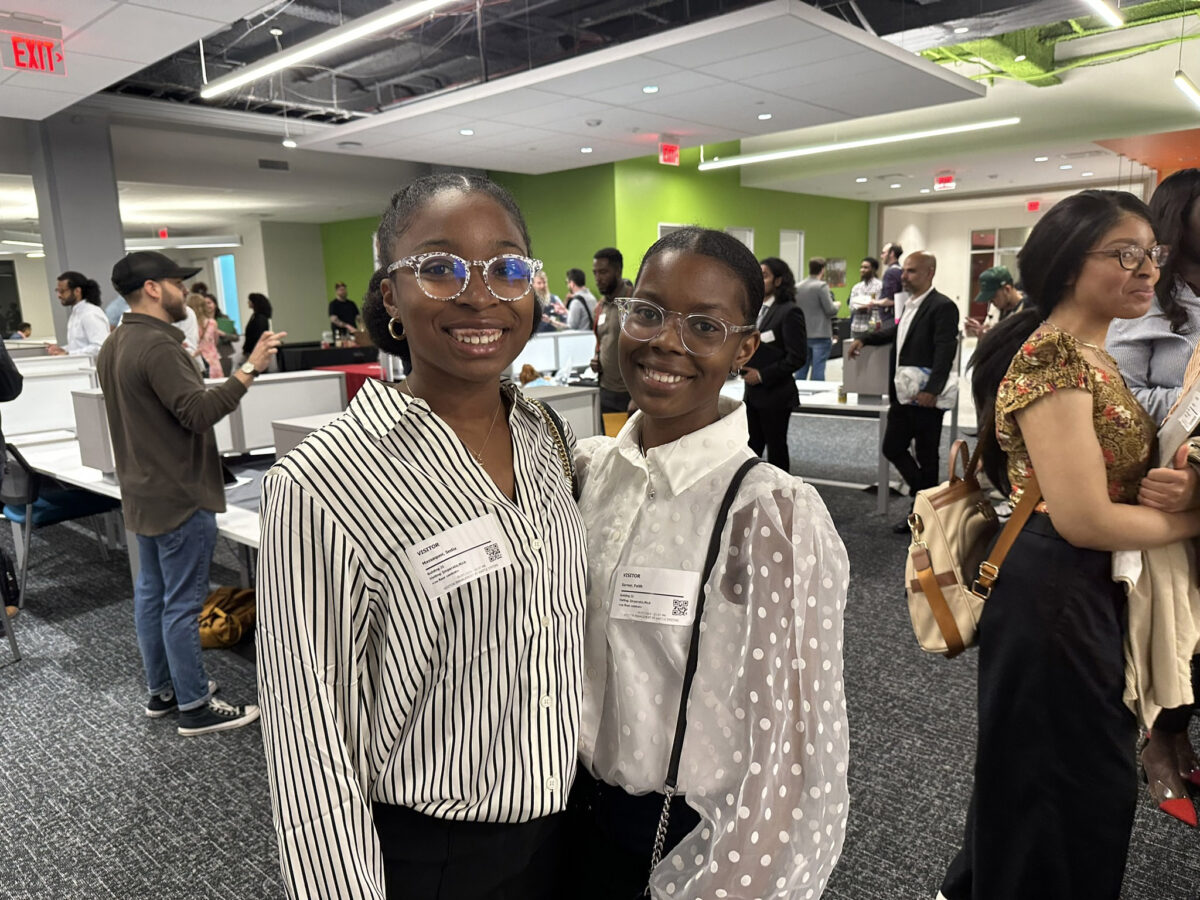A federal appeals court on Monday issued a 2-1 ruling that forces the venture capital firm to suspend the program, known as the Strivers Grant Contest, as litigation in a lower court plays out.
The lawsuit claims the program breaks the Civil Rights Act of 1866, which prohibits racial discrimination in private contracts. CEO Arian Simone and supporters of the program argue it’s more like scholarships given to students of certain descent — Italian, say — and therefore protected by the First Amendment.
In summer 2020, George Floyd’s high-profile murder and divisive pandemic-era rhetoric drove a surge in activism, and then funding directed toward racial justice efforts. “We had two pandemics going at the same time,” Simone said in an interview at the end of May. Covid-19 “and we had the on-going pandemic that is systemic racism.”
American companies made at least $340 billion in racial equity commitments between May 2020 and October 2022, according to McKinsey’s tally.
One place those dollars went was into a slew of venture capital funds and so-called capital-readiness programs targeting women and Black and Hispanic Americans, who collectively hold excruciatingly tiny ownership of businesses that have taken outside investment — an imperfect but common marker of expected company growth, signaling wealth creation. Just 2.2% of VC funding went to women in 2022, and just 0.39% to women of color, according to a Fearless analysis.
Fearless, which Simone cofounded with Ayana Parsons, rose to national prominence by investing $27 million into 40 businesses led by women of color across two venture funds, and deploying grants and programming through a related charitable foundation.
Then came the lawsuits. Last June, the US Supreme Court struck down affirmative action in higher education, effectively ending race-based admissions at universities. Two months later, the same conservative activist, Edward Blum, filed suit against the Fearless grant program, arguing that if funding can’t explicitly target only white residents, then it ought not target Black residents either.
“Our work doesn’t oppress people,” said Simone in another interview.” The work we do is addressing a disparity.”
Stakeholders across the political spectrum caution that shutting down the Fearless program would limit what has been called “philanthropic freedom” — or the ability for funders and investors to put their dollars where they want them, within an existing legal framework.
What will stay legal? Community engagement, employee-led resource groups and long-term coalition building
Fearless Fund is evaluating all options to continue fighting the lawsuit despite the appeals court ruling, according to the Associated Press. The firm had plenty of support for its position, including from the National Venture Capital Association trade group, which filed an amicus brief.
The case is being closely watched by funders, investors and economic development leaders who added a racial and gender equity lens to many of their strategies.
Technically has spoken off-record to organizers and funders who entirely stopped or at least shifted the language of programming focused on Black people. Though they quietly continue their work, the consensus has been to wait for the court case to play out. Others fiercely and vocally continue their work.
Those decisions shape a broader conversation. Boosting economic mobility, removing race as a socioeconomic predictor and simply building teams that reflect communities served are widely accepted goals.
There are other ways to reach them, even with the threat of losing an explicit race lens.
Income-based programs and special preference for certain zip codes are legal — and because of twisted socioeconomic history — can disproportionately benefit Black and Hispanic neighbors. Also legal are programs that are open to anyone but invest staff time and marketing resources to encourage and support participants from different backgrounds. Yes, that means race. But it ought to also mean older residents, immigrants and people from low wealth communities.
If any given group of people are missing from the most economically important roles we have, then we are all missing out on the invention and economic output they can offer
Last year, Technically published a report on inclusive entrepreneurship underwritten by the wealth management giant UBS. One key point? By 2018 or so, enough research had piled up that these investments no longer needed to rely on moral arguments. There is strong economic incentive: if any given group of people are missing from the most economically important roles we have, then we are all missing out on the invention and economic output they can offer.
This is true both for entrepreneurship access and for boosting representation within high-demand careers. If fewer software developers are Black than the population as a whole, then our economy is likely missing out on invention.
Research shows mandates and moral arguments for diversity and representation programs are ineffective and polarizing. They repel people who need convincing, even as they inspire those already convinced. What does work is voluntary community engagement, employee-led resource groups and long-term coalition building.
Fortunately, there are tools to help. For employers, over the long term, upskilling your existing workforce for more in-demand jobs is cheaper than recruiting new talent — it just takes upfront investment. Apprenticeships and employee resource groups are effective too.
As for entrepreneur support, blending direct investment and charitable giving was becoming a common strategy — before the chilling from last year’s lawsuit. Fearless Fund CEO Simone is practiced in making the straightforward business case.
“This is all about being able to turn a small business into a multimillion — and hopefully hundreds-million — dollar business that can scale, and either go public or be sold to private equity firm or a larger strategic,” she told Forbes, using business jargon familiar to an investor class.
Factors that matter: Work-from-home policy, pay transparency, work schedules and travel requirements
Workforce representation and entrepreneurship access both benefit from a clear-eyed economic argument: Lackluster representation signals leaders are missing opportunity.
As many employers struggled during the pandemic with hiring and promoting women and Black and Hispanic professionals, entrepreneurship in the United States boomed, led by just those same groups.
One big reason many chose entrepreneurship wasn’t for financial gains first — most self-employed Americans earn less than their traditionally-employed peers — but for the flexibility of creating their own schedules. Many women, especially Black women, started working for themselves in the pandemic so they could manage their time more independently than their employers allowed.
So work-from-home policy, pay transparency, work schedules and travel requirements all dictate what your employees will look like.
How you work will determine who will work.
Employers aren’t the only bad guys. Last year, Claudia Goldin won the Nobel Prize in Economics for her research on “greedy jobs” and women in the workplace. Women still contribute far more childcare, eldercare and housecare responsibilities than their male partners. That domestic imbalance, more than discriminating bosses, appears to be chiefly responsible for lingering gender pay disparity.
As a founder-CEO who ends his workdays at 4:30p to swap childcare pickups and still struggles to balance responsibilities with my wife, I know this structural contribution well. It is so much thornier than villainous -isms.
One last kind of representation we all struggle with today: political. We’re in a presidential election year. You need a plan for whether or how you want workplace conversations on the matter. We all need to consider how integrated, or not, we intend to be politically.
As my friend and author Mónica Guzmán advises in her book on civil discourse: Don’t ask someone “why” they believe something, which puts them on the defensive. Ask them “how” they came to believe something, which introduces a personal story.
As Fearless Fund CEO Simone likes to say: “From Fearless to freedom.”
Updated June 4
- A venture capital firm with a program that supports Black women business owners faces a legal challenge under anti-discrimination laws. The Fearless Fund lawsuit is part of a broader trend of a backlash against the slew of racial equity initiatives implemented post-2020. Until that court case is decided, funders and investors are acting with caution.
- But diverse representation in the workforce and entrepreneurship has concrete economic benefits, so there’s been a shift from race-focused programs to more inclusive strategies like income-based and community-specific initiatives.
- The pandemic saw increased entrepreneurship among women and Black and Hispanic professionals due to the flexibility it offered, proving that how a workplace operates determines who is able to work.
Before you go...
Please consider supporting Technical.ly to keep our independent journalism strong. Unlike most business-focused media outlets, we don’t have a paywall. Instead, we count on your personal and organizational support.
Join our growing Slack community
Join 5,000 tech professionals and entrepreneurs in our community Slack today!

The person charged in the UnitedHealthcare CEO shooting had a ton of tech connections

Delaware students take a field trip to China using their tablets and ChatGPT

Northern Virginia defense contractor acquires aerospace startup in $4B deal



